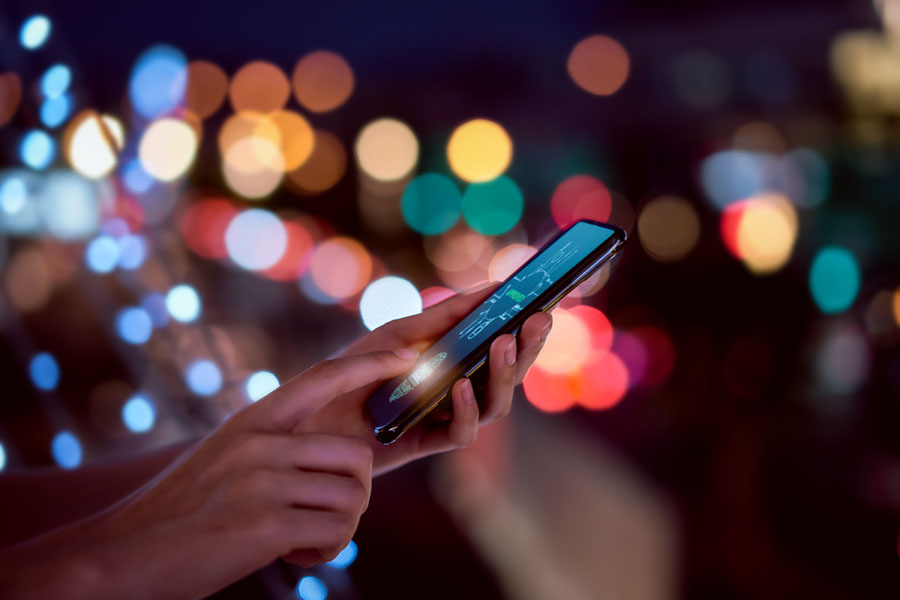
Biometric Application Facts
Biometric Application Lets the Government Identify You. Police State Rule is a Mindset, Wherein People Surrender Their Basic Rights and Freedoms to Feel Safe and Secure.
A biometric application is an automated method to recognize an individual through a behavioral or physiological characteristic such as a fingerprint or a voice pattern.
Other types of biometrics include iris and retinal scanning, facial recognition, and hand or finger geometry. Biometric technology will be used more and more in the future as a way to enforce security measures.
In the United States, the Department of Homeland Security plans to use biometrics as a way to strengthen security at borders, as well as to tighten security in airports.
You can expect to see biometrics used in passports and other travel documents, such as visas, in a reported effort to eliminate identification theft.
Governments all around the world are interested in a wide range of biometrics as a way to identify individuals and enforce security, as the global elite seek to tighten the web around humanity.
Each biometric application comes with its own advantages and disadvantages, and each application will be chosen on how well it performs in a specific security situation.
Security is not the only industry sector that is going to be using biometrics. With its wide-ranging technological capabilities, biometrics will be used in retail sales, law enforcement, social services, and health services.
There are some industries that already use some early and less sophisticated biometric devices.
Some of the places where you’ll find biometric identification already being used are banks, government offices, driver’s licenses, and universities.
The Future of Biometrics
As the technology for biometrics becomes more sophisticated, security and law enforcement agencies will be using the technology more often.
The ability for a biometric application to identify suspects by measuring facial dimensions means these characteristics can be stored in a database and used by law enforcement around the world to identify the subject, but it can also be used on you.
Once thought of as science fiction fantasy, biometrics is now the future for applying security measures to any business or government organization.
Biometrics will also be used in stores for checkout security as well as to limit access to vehicles and cell phones.
Biometric facial recognition will allow companies that require high security to identify employees simply by scanning their face and comparing it to a database for valid identification.
As biometrics is used more and more, further research will add new innovations to what is already a unique and scary system of identification.
Privacy Concerns
Biometric application is going to change the way security is managed in the future. This leads to many concerns about privacy and how much information the government and law enforcement really want to know about us.
Biometric technology can reveal a great deal of information about you. Photos reveal gender, race, and age. Voice recognition can reveal education, age, nationality, and gender.
Even your fingerprints can reveal your gender and in some cases even your ethnic origin. All of this information is supposed to be securely protected within their databases. But secured against whom?
The case against the government wanting to keep track of what we are doing grows stronger with every new security application that we are subjected to.
It is obvious their intent is no longer just to keep us safe, but to exert their control over us in ways that we should not miss.
In just a few short years there isn’t anything about each of us that won’t be out there for someone to search for and then put together a complete profile of our lives.
Data Profiling
Everyday, information is collected from each and every one of us, many times without our knowing it’s happening.
Every time we use our debit card or credit card for a purchase we leave behind a data trail that shows how much we spent, what we bought, where we bought it, and when we bought it.
Information about us is also left behind when we surf on the Internet, subscribe to a newspaper, join a professional organization, give money to a charity, or take a book out of the library.
In fact, the list is endless. And all of this information is stored in computer databases.
Although these computers are supposedly not yet linked, in the very near future the capability will exist where all of these databases on computers could be linked together.
The idea in a police state is to have total compliance, willingly given or not, and a great deal of that is accomplished by the ability to track every citizen anywhere on the planet, resulting is a sort of , what’s-the-use attitude.

 My First Amazing Ayahuasca Experience
My First Amazing Ayahuasca Experience  Pine Needle Tea
Pine Needle Tea  The REAL Controllers of Humanity: The Papal Bloodlines
The REAL Controllers of Humanity: The Papal Bloodlines  Is it Global Warming or Cooling?
Is it Global Warming or Cooling?  Gun Rights and Obama Examined
Gun Rights and Obama Examined